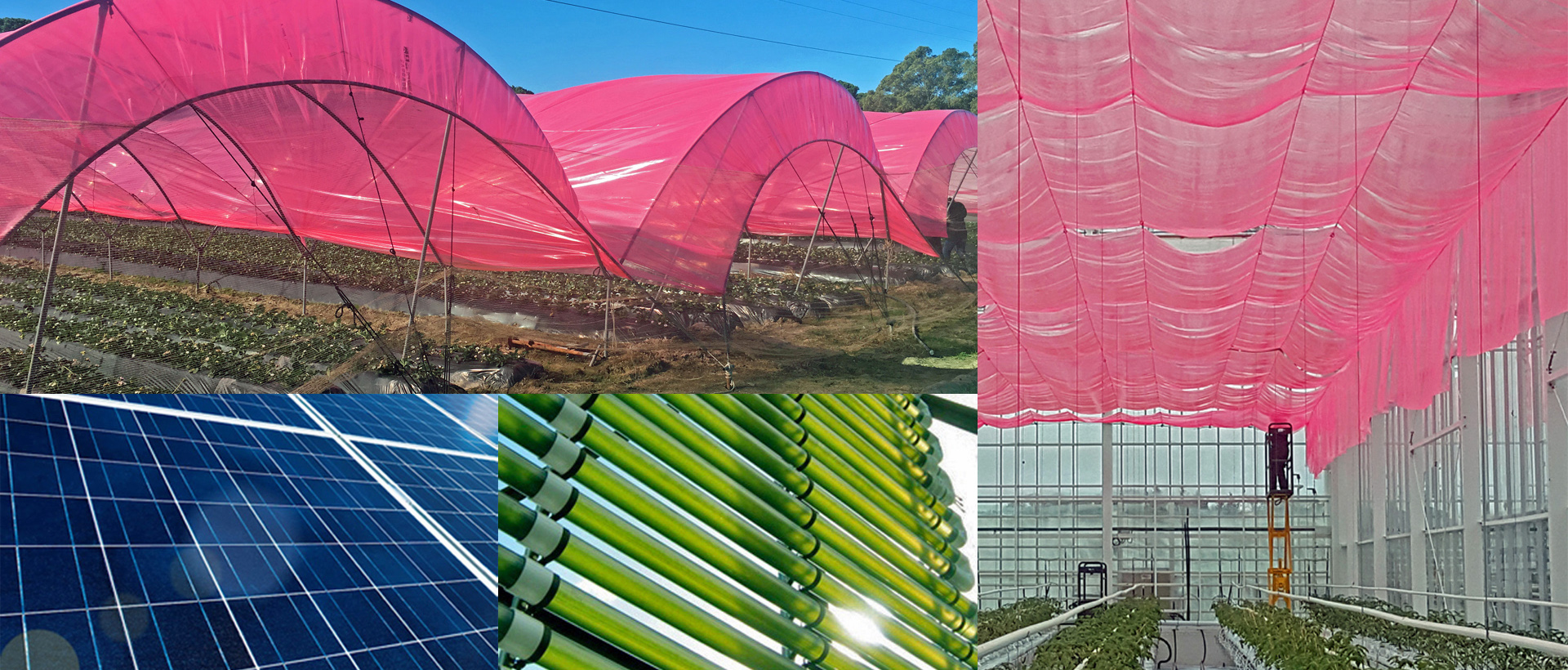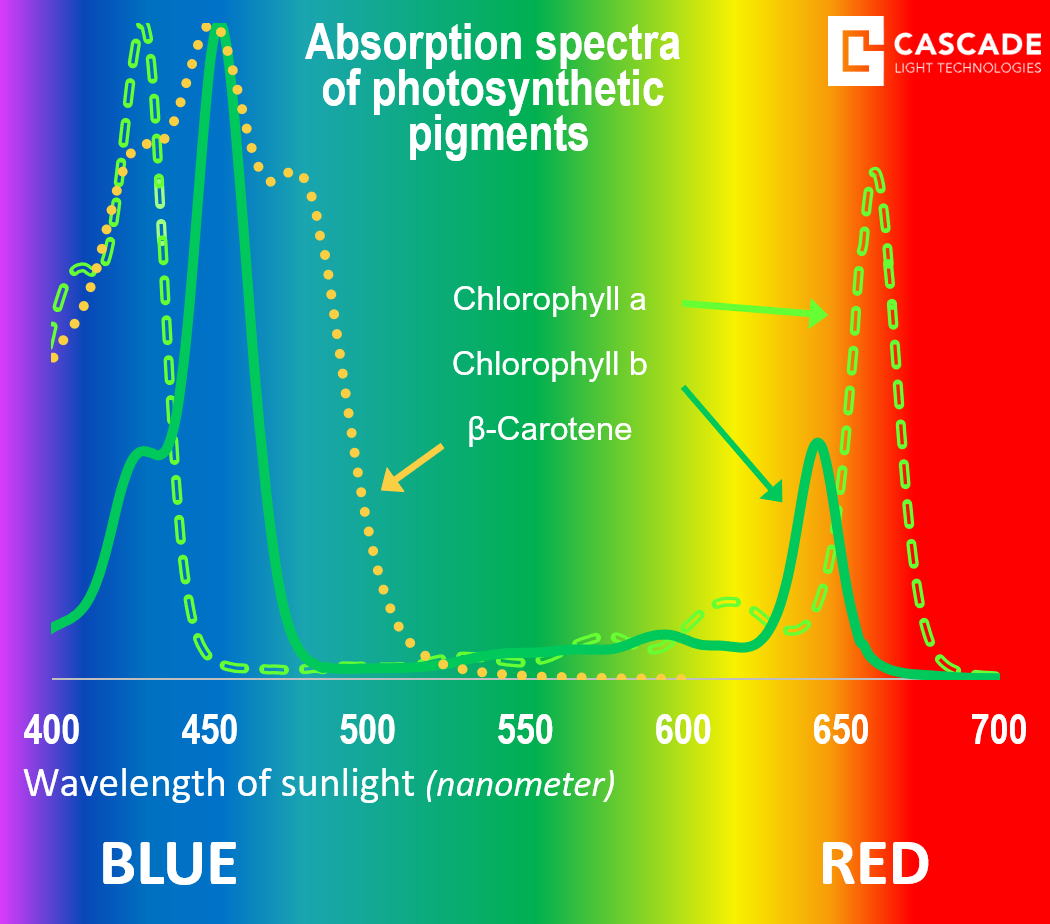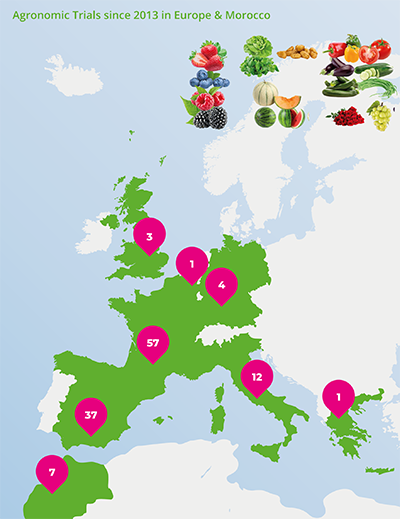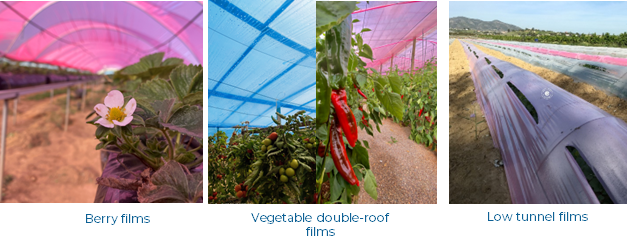Other applications
LIGHT CASCADE® technology manipulating the propagation of light within materials is transferable to any application using light. Multiple fields of applications have already been identified or explored in the laboratory.
Glass greenhouses
Beyond plastic greenhouse films, work on the durability of our formulations allows LIGHT CASCADES® technology to be applied to glass greenhouses used in Northern Europe or America, regions where light is a critical issue for winter crops
Mulch films, Algae & Microalgae production (Photosynthesis)
Mulch films, widely used in agriculture to help crops get started or limit the growth of competing weeds, offer strong prospects for LIGHT CASCADE® application.
Tests on microalgae carried out with CEA Cadarache research laboratory showed positive results on the growth of spirulina or chlorella confirming that algae and microalgae are promising markets for LIGHT CASCADE® technology.
Industrial applications: Photovoltaics, Lighting (LED's...), Fluo Paints, Print marking...
CASCADE already explored its technology for various industrial applications such as photovoltaics, print security marking, fluorescent paints and even the LED lighting, these applications and markets are in demand to better select the wavelength ranges of light emission. CASCADE recent technological achievements resulting from the industrialization of the first CASCADE LUMINEUSE® products for greenhouses allow CASCADE to transfer its know-how to many other applications and new markets
More generally, LIGHT CASCADE® technology can be adapted to any application involving light, allowing a wide range of potential uses.
Other applications evaluated using LIGHT CASCADE® technology:
- Microalgae: CEA
- Fiduciary applications: Banque de France
- Print marking & Document authentification: Imprimerie Nationale
- Photovoltaic Modules: Total
- Military stealth solutions (in collaboration with a defense organization)



 Agronomic Results Validated by Multiple Field Trials
Agronomic Results Validated by Multiple Field Trials